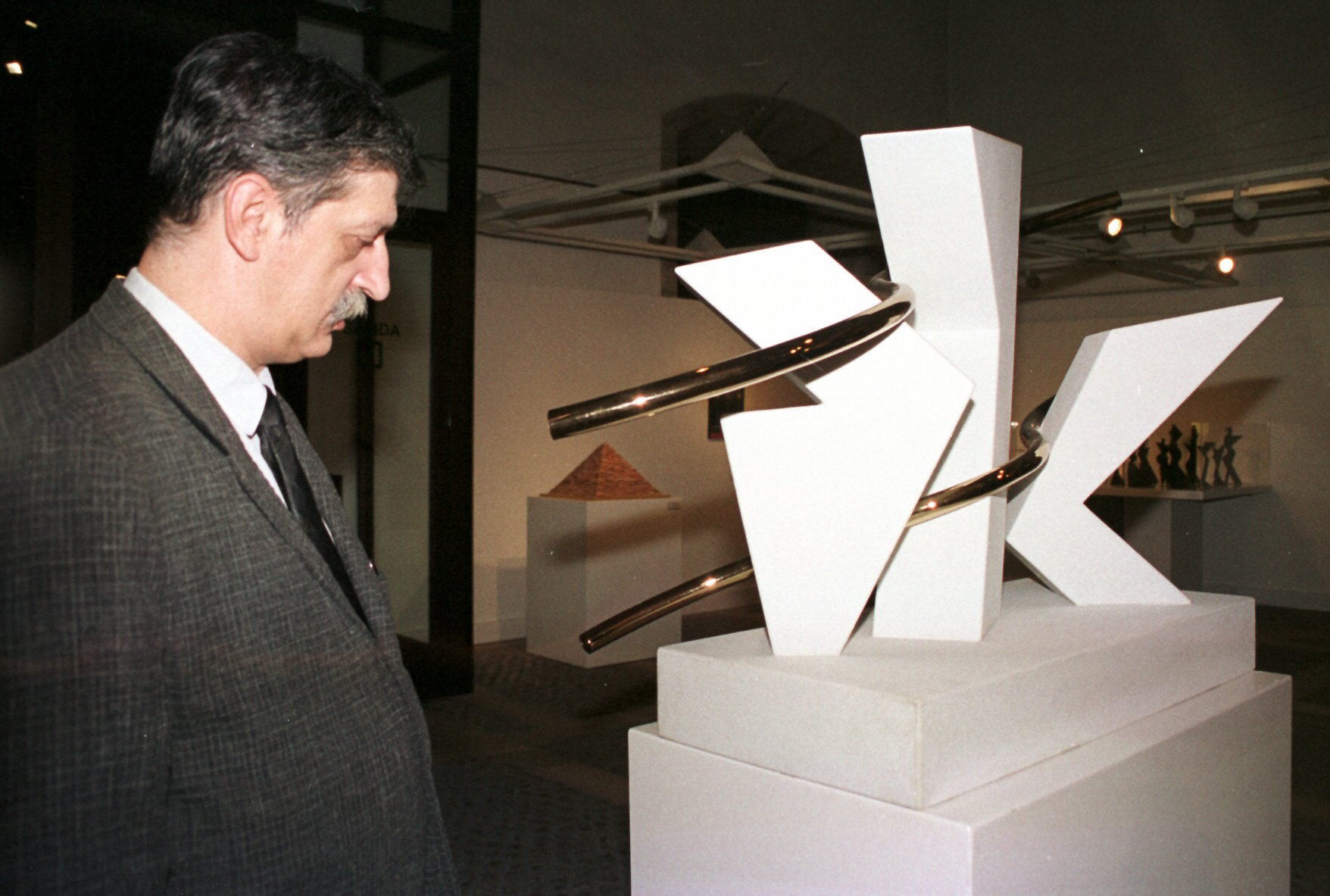On Saturday, March 1, Fernando Huici died in Madrid, which was for more than 30 years art critic of El País .. A walk through social networks can give an idea of the orphanhood that leaves among several generations of artists, and affection and admiration, which rarely go together, but with Fernando, yes. But he was a peculiar character, of rare humility, even if he was very aware of his extraordinary worth. And with an eye and criteria to perceive, between the new and the least new, the valuable and the true.
Fernando Huici, my friend, was a very cultured guy and with many interests, not just art. Music, cinema, philosophy, literature, but did not disgust genres minors: For example, the black novel. He was aware, for pure pleasure, and devoured essay, about art of course, but also about everything else. The bolero? Well too. It was nocturnal. He liked good eating, good wine and a good haban. Cuba and Alexandria. He was black tobacco smoker. He had a sense of humor, made us laugh. Yes, and counted jokes. Unimaginable reading their documented texts and articles, of an exemplary rigor, right?
Or following the exhibitions that he curated, although some clues are. In the summer of 2003, in Reina Sofía, he set up Josep Torres Campalansthe cubist painter created by Max Aub, who, in addition to writing his biography, He had painted about thirty works and several drawings. The history of that fiction, which was a book and exhibition in Mexico, of its literary and artistic accomplices, Hiici accompanied it with things from the things of the friends From Catalan in Paris: Picasso, Matisse, Gertrude Stein, Kahnweiller … Did the invention of Max Aub seriously take or gave another return to the joke? When this newspaper turned twenty years, Fernando Huici designed and directed the exhibition that celebrated it, El País 20 years, 1976/1996and his heart was a newspaper like those of every day, with the nine sections of that time, and twenty huge pages per year per section. In 1997, at the Mapfre Foundation, he gathered in Out of order to six painters from La Vanguardia (María Blanchard, Norah Borges, Maruja Mallo, Olga Sachaoff and Ángeles Santos), now canonical, but then practically ignored. I owe Fernando one of my funniest venices: when the Spanish pavilion was chattering at the 1995 Biennial, with Eduardo Arroyo and Andreu Alfaro, the great sculptor today quite forgotten. We accompany them a scandalous group of Spaniards and we gave a lion of San Marcos, from Disdaten, because they had not rewarded us. Although it was the best.
And we can follow: the fifteenth century pavilion in the exhibition of Seville 92, that expo of vanity (He collected them) entitled POSTRIMERÍASin the Mapfre Foundation, and so many anthological and individual. In 2014 he published his irreplaceable Salvador Dalí. Antoni Pixot. Conversations with Fernando Huici. But following its publications, in this newspaper and in its hundreds of catalogs, you can follow the passage of Spain to modernity. Her aesthetic preferences were with the then new figuration, and for her she opted as a critic.
THE MAGAZINE OF THE MAGAZINE Art and partin his long Santander stage, it was his last adventure, and surely because of the change of times he did not end well. It is impossible in this short space to tell what Fernando Huici has done for the perception of art in this country.
In addition, and above all, he was a great person. And that shows. Huici was born in Barcelona in 1952, within a family of writers. His father, José Germán Huici, was a film and television screenwriter, and his mother, Teresa March, sold under pseudonym millions of copies of pink novels in Spain and Latin America. With The innocent He won the Eulalio Ferrer novel award in 1977, and I know because I was in the jury. And there were her aunt Mar March and her husband, Ricardo Fernández de la Reguera, both known novelists. And the saga continues: his son Germán is an original thinker and Raquel González Escribano, art historian, works in the Prado Museum. His usual partner, María Escribano, is critical and curator of exhibitions, in addition to great poet.
I met him in Cádiz, in a Congress of young philosophers, Holy Week in 1975, and there is a photo made by an old street photographer where he was later the Flat Foundation of the culture of this newspaper, starting with the art critic and intimate friend of his Paco Calvo Calvo Serralller. Then we have traveled together, we have dinner together, we have celebrated from electoral days at the end of the year, going through birthdays. And, despite the painful of making his obituary, I can’t write about Fernando Huici without smiling.

